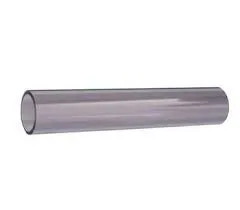Aug . 14, 2024 13:12 Back to list
Durable and Flexible 1% PVC Pipe for Efficient Irrigation Solutions in Agriculture and Gardening
The Advantages of 1% PVC Irrigation Pipe in Modern Agriculture
Irrigation is a critical component of modern agriculture, particularly in regions where water scarcity is a concern. Among the various materials used for irrigation systems, PVC (polyvinyl chloride) pipes have become a popular choice due to their durability, cost-effectiveness, and ease of installation. Specifically, the 1% PVC irrigation pipe has garnered attention as an effective solution for various agricultural needs. In this article, we will explore the benefits of using 1% PVC irrigation pipes and how they contribute to sustainable agricultural practices.
Durability and Longevity
One of the primary advantages of 1% PVC irrigation pipes is their impressive durability. PVC is resistant to corrosion and degradation, which can be caused by harsh environmental conditions, chemicals, and biological factors. Unlike metal pipes that may rust over time, PVC pipes maintain their structural integrity for many years with minimal maintenance. This longevity not only reduces the need for frequent replacements but also lowers the overall costs associated with irrigation system upkeep.
Cost-Effectiveness
The economic viability of 1% PVC irrigation pipes is another compelling reason for their widespread use. The initial investment in PVC pipes may be higher than that of some other materials, but the long-term savings are significant. Their lower maintenance costs, combined with their durability, result in an overall reduction in expenses. Moreover, PVC pipes are lightweight and easy to transport, which minimizes installation costs and allows farmers to set up irrigation systems more efficiently.
Easy Installation and Flexibility
1 pvc irrigation pipe

1% PVC irrigation pipes are designed for easy installation, making them accessible even for those who may not have extensive experience with irrigation systems. The pipes can be cut, joined, and installed quickly, reducing the time required for setup. Additionally, the flexibility of PVC allows for various configurations, enabling farmers to create customized irrigation layouts that suit their specific needs. This adaptability is particularly beneficial for crops that have varying water requirements or fields with irregular shapes.
Water Efficiency
In today's socio-economic climate, water conservation is paramount. Efficient irrigation practices are crucial in optimizing water usage and ensuring sustainable agricultural production. PVC irrigation pipes can be designed to minimize water loss through evaporation and seepage, allowing for more precise delivery of water directly to the root zones of plants. This targeted approach not only conserves water but also enhances crop yields, making it a win-win solution for farmers striving for sustainability.
Resistance to Biological Growth
Another advantage of using 1% PVC irrigation pipes is their resistance to biological growth, such as algae and fungi, which can clog irrigation systems and reduce efficiency. The smooth surface of PVC pipes prevents the accumulation of microbiological growth, ensuring a consistent flow of water. This resistance further contributes to lower maintenance requirements and improved system reliability.
Conclusion
In conclusion, 1% PVC irrigation pipes represent a modern and efficient solution for agricultural irrigation needs. Their durability, cost-effectiveness, ease of installation, water efficiency, and resistance to biological growth make them an ideal choice for farmers looking to optimize their irrigation systems. As agriculture continues to evolve in response to environmental challenges, the adoption of innovative materials like PVC pipes will play a crucial role in promoting sustainable farming practices. By investing in high-quality irrigation solutions, farmers can ensure healthier crops, better resource management, and a more profitable future.
-
High-Quality PPR Pipes and Fittings Durable ERA PPR & PVC PPR Solutions
NewsJul.08,2025
-
Black HDPE Cutting Board - Durable, Non-Porous & Food Safe HDPE Plastic Cutting Board
NewsJul.08,2025
-
High-Quality CPVC Panel Durable HDPE & PVC Panels Supplier
NewsJul.08,2025
-
Double PE Welding Rod Supplier - High Strength, Durable & Versatile Welding Solutions
NewsJul.07,2025
-
High-Quality PVC-O Pipe Supplier Durable 75mm PVC Pipe & Connections Leading PVC Pipe Company
NewsJul.07,2025
-
HDPE Drainage Pipe Supplier – Durable & Corrosion-Resistant Solutions
NewsJul.06,2025

